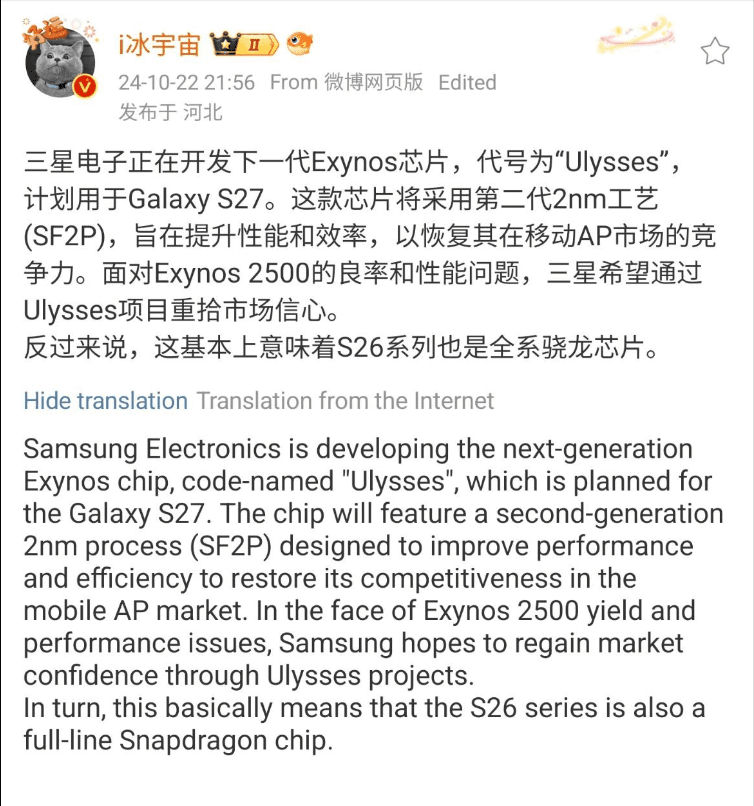Earlier today, it was reported that Samsung will exclusively use the Snapdragon 8 Elite chip in all of its Galaxy S25 models. This trend appears set to persist for another year since there are indications that the Galaxy S26 series will also depend on Qualcomm’s Snapdragon technology.
Galaxy S26 May Stick with Snapdragon SoC
According to a tip from Ice Universe, who shared insights on Weibo, Samsung is contemplating the exclusive use of Snapdragon processors for the upcoming Galaxy S26 lineup. This is exciting for users who favor Snapdragon chips, as they are known for providing excellent performance and decent power efficiency.
However, Samsung is not completely abandoning its own Exynos processors. Ice Universe also pointed out that the company is developing a new Exynos chip code-named ‘Ulysses.’ This chip is slated to be incorporated into the Galaxy S27, which is anticipated to debut in 2027. The new Exynos processor is said to be produced using Samsung’s next-gen 2nm technology (SF2P), expected to be available by late 2026.
Initial Plans for Galaxy S25 Series
Initially, the Galaxy S25 and Galaxy S25+ were meant to feature the 3nm Exynos 2500 chipset, also manufactured by Samsung. In fact, the company addressed the Exynos 2500 during its earnings call. Nevertheless, Samsung encountered production challenges, which hindered their ability to produce sufficient chips. As a result, they opted to change all Galaxy S25 models to the Snapdragon 8 Elite instead.
Currently, Samsung is concentrating on Snapdragon chips, but they have ambitions to reinvigorate the Exynos brand with what they are calling “Project Ulysses.” The hope is that this new chip will help them avoid the production issues they faced before and restore faith in Exynos processors.
Future of Samsung’s Chip Development
Overall, Samsung is diligently working to enhance its in-house chips while simultaneously relying on the dependable Snapdragon technology for now. It will be interesting to observe how this unfolds, particularly with the anticipated release of the Galaxy S27 in the next few years.


Leave a Reply